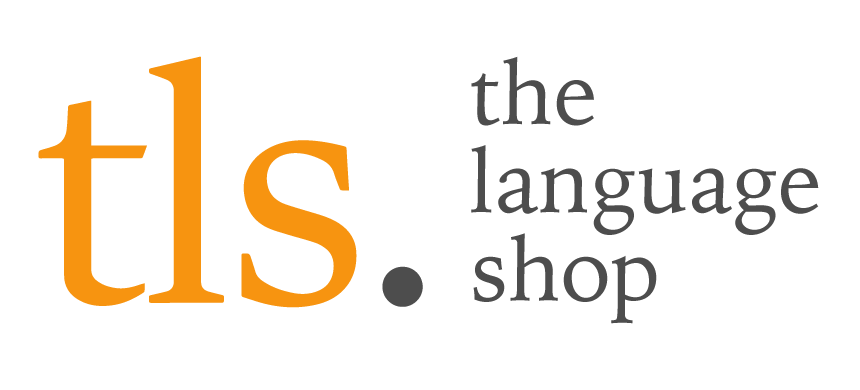Your month ahead - important upcoming dates for your calendar
On the calendar
1 February – Time to Talk Day
Mental health charities Mind and Rethink Mental Illness launched Time to Talk Day to encourage us all to talk more about mental health and harness the real benefits of chatting – something many of us can get behind!
Freeing mental health problems from stigma is an important step in getting everyone the help they need, but it is only part of the answer. We know that many of your service users have profound mental health needs, and we provide specialist interpreters where those needs are compounded by communication barriers.
Make your interactions count
How do you connect with a patient when you can’t talk directly to them? TLS will never assign you an interpreter without the specialist skills for this work, but there are a number of ways to make your meetings more effective and comfortable.
- Ask your interpreter for a brief pre-meeting chat so you can share any relevant information, such as cultural norms around mental health. When the interpreter and provider work together as a team, the outcome is often improved for the patient.
- Never leave the interpreter alone with the service user. This is for their safety as well as to avoid any blurring of the boundaries in their role.
- Factor in some time for a debrief with the interpreter. As during a mental health appointment, it’s not just the words used but the way they are used that is important, a post-appointment debrief will give you both the chance to talk about how things were said, eg any peculiarities of speech.
In your diary
LGBT+ at Work Conference - Diversity and Inclusion Leaders (dileaders.com)
Inclusion, Equity & Diversity - beyond box ticking. Tickets, Tue 6 Feb 2024 at 09:30 | Eventbrite
February’s dates at a glance
Religious/cultural
2 – Imbolc/Candlemas, Wicca and Pagan
3 – Setsunbun-sai, Shinto
7 – Lailat al-Miraj, Islam
10 – Losar begins, Buddhist Lunar New Year Confucian, Daoist and Buddhist
13 – Shrove Tuesday, Christian
14 – Ash Wednesday (start of Lent), Christian Valentine’s Day, Christian Vasant Panchami, Hindu, Sikh and Jain
15 – Nirvana Day, Buddhist
18 – Zacchaeus Sunday, Orthodox Christian
22 – Feast of the Chair of Saint Peter, Catholic Christian
24 – Magha Puja, Buddhist
25 – Triodion begins, Orthodox Christian Lailat al Bara’ah, Islam
26-29 – Intercalary days, Baha’i
Awareness and events
1-29 LGBT+ History Month
1 – World Hijab Day
1 – Time To Talk Day
1-7 – World Interfaith Harmony Week
4 – World Cancer Day
5-11 – UK Race Equality Week
5-11 – Children’s Mental Health Week
6 – International Day of Zero Tolerance to Female Genital Mutilation
6 – Safer Internet Day
11 – International Day of Women and Girls in Science
12 – Red Hand Day for Child Soldiers
15 – International Childhood Cancer Day
17 – World Human Spirit Day
20 – World Day of Social Justice
In other news: stories from the language industry and beyond
US study reveals that language-based discrimination limits access to mental health services
A recent study in California showed the implications of not offering language support on access to mental health care. Using the example of Spanish, a very widely spoken language in California, the study demonstrated how difficult it was for service users to receive good quality care if they were not fluent in English. One of the report’s key findings was for interpreters to be included in healthcare planning as well as delivery.
UK Parliament Q&A on the Accessible Information Standard for public sector health providers
In December, MP for Crawley, Henry Smith, asked the Commons about levels of compliance with the Accessible Information Standard, a way of ensuring access to healthcare for those with communication needs. Click on the link above to read the response by MP Maria Caulfield, Parliamentary Under-Secretary (Department of Health and Social Care).
And finally…
Machine translation has come a long way, but this article about mistranslations spotted on holiday is a hilarious demonstration of how far it still has to go! Knowledge is powder…
Language fact file: British Sign Language (BSL)
Number of native users: There are more than 87,000 Deaf users, from a total of 151,000 users. (source: British Deaf Association)
Learn some: The easiest way to communicate with a Deaf person using BSL is to finger spell words. Have a go using the RNID BSL Guide:
https://rnid.org.uk/wp-content/uploads/2021/03/RNID_BSL_Finger_Spelling_Alphabet_Info.pdf
Fast facts:
- Signing between deaf and hearing people has been around for hundreds of years. The first recorded use of it in the UK is in 1324, when a deaf man named John de Orleton used signs to formally transfer property rights to a family member.
- BSL is the fourth most widely used language in the UK. However, just as with spoken languages, there are regional accents, so users from different parts of the country might find each other harder to understand!
- Although we usually think of hand gestures when we talk about sign language, BSL also uses facial expressions and body language. It has its own grammatical structures, which do not mirror those of the spoken language at all.
The Language Shop provides BSL interpreting. Ask your account manager if you would like more information.
The Linguist’s Story
Every month, we get to know a bit more about one of our linguists. This month, meet Sarah Meeks, who is a British Sign Language interpreter.
Sarah, tell us about the work you do for TLS.
"I work as a British Sign Language interpreter so I attend meetings/medical appointments, do stage work at events etc and a bit of performance interpreting too."
What's been your favourite project at TLS?
"My favourite booking was when a Deaf mother went into labour and a team of interpreters from TLS were on call for a week to see her through labour and delivery. Even though it was very hard work staying awake all night through the labour, being part of someone's magical journey of childbirth was an absolute honour. I'd like to say she named the baby after me but... haha!"
What has been your biggest challenge?
"It's always very hard when you have to interpret bad news. I do a lot of medical and I remember being in an ultrasound once with deaf parents who were told their baby had a hole in the brain and was not expected to live. That was heart wrenching and emotional but you have to be professional and deliver the message in the way the doctor intended, but always with empathy."
Can you tell us about a time your work has made a difference to someone’s life?
"I remember another medical booking with a man who was taking too many vitamin tablets and his potassium was so high they needed to drain his blood and give him daily blood transfusions immediately. It was very scary having to make sure I was interpreting correctly and to ensure that the Deaf person was understanding what the doctor was saying. I had built up a good relationship with the patient and although he was not a native BSL user and English was his third language, I was able to explain the complexity of the problem to him using visual vernacular. I asked him to relate it back to me so that I was assured that he fully understood. It was a shock to both of us that his life was in danger - the appointment had been a seemingly innocuous blood test but that appointment literally saved his life and he was so grateful to me for helping him understand everything. Often Deaf patients go to appointments and it's 50/50 whether an interpreter will be there. There is a big shortage of interpreters at the moment especially for face to face bookings so I was really proud that my work that day helped to save his life."
Tell us something interesting about you.
"I play women's baseball and was one of the first players to train with Great Britain before having my children. I have travelled the world and I used to be a DJ!"
What are your ambitions for the next 12 months?
"To get back into baseball when my 18 month daughter finally sleeps through the night, and to buy land and build my own home."
Book one of our BSL interpreters online now!
TLS Christmas Message 2023
As we look back over another year together, I am filled with appreciation for our customers and the TLS team.
What a challenging year it has been! Our country and the world continue to suffer from the effects of the global pandemic, wars and the resulting economic pressures we now face. The cost of living crisis has put even more pressure on the public sector, and our customers and communities are having to make difficult decisions daily to deliver the best outcomes they can. Many in our communities face increased intolerance from a hostile political atmosphere.
Mindful of these challenges, I am proud that we have all done our bit to make the world a better place during this time. You, our customers, have continued to prioritise accessibility and inclusion for your service users. The TLS team has pulled together to overcome financial pressures and continue to put people with communication needs at the heart of what we do.
While it seems prices everywhere are going up, we have kept ours steady by streamlining internal systems, investing in technology for improved quality and responsiveness and launching our money-saving remote video interpreting service in spoken and sign languages.
TLS customers will know that we stay true to our strong ethical foundations, even during difficult times. This year, we have delivered social outcomes by sponsoring bi-lingual residents to gain an accredited interpreting qualification. We have also developed and delivered a brand new system for Bettertogether, whose Shared Lives service provides long term care for people in our community.
Together in 2023 we achieved extraordinary things, and we are committed to making an even bigger difference in 2024.
We have exciting plans to share with you over the coming months, so keep reading your Monthly View to stay up to date. On the agenda so far is a new assessment framework for language professionals, sharing and providing training and guidance across a range of equality and diversity related themes and focusing on how we can deliver even better value for money.
On behalf of the whole team, I would like to thank you for your continued support. Rounding off this unprecedented year, I wish you and your families a safe and happy holiday and hope that 2024 brings you and all your loved ones a healthy and happy year.
- Jaimin Patel, Managing Director.
Specialised training keeps linguists in top condition
The importance of quality language support in medical settings is in the news, but at tls it is always high on the agenda. We are proud to provide linguists who are specialised and experienced in supporting health care bookings of all kinds.
To keep our interpreters at the top of their game, we recently joined forces with our partners in the NHS North East London Foundation Trust (NELFT) to hold a free training day for our interpreters.
The aim of the event was to equip interpreters with strategies for clinical encounters, share good practice, improve accessibility for patients and service users and improve quality of care by minimising interpreting errors.
The trainees shared glowing feedback: “Thank you for a wonderful conference. I can’t believe such quality has been delivered for no cost!” said Helen Merry, a BSL interpreter. Arabic interpreter, Abdulrahman Heidari, commented: “Thank you for holding such a training session, other agencies don't have such events” and Folasade Okunade, a Yoruba interpreter, said: “This is a brilliant program, hoping to attend more trainings in future”.
Book one of our interpreters online now.
Calendar Snapshots
4 January – World Braille Day
Celebrated every 4 January since 2019, World Braille Day marks the invention of this writing system for blind and visually impaired people. It is held on the birthday of its inventor, Louis Braille.
From Braille to Screen readers
Over the last 100 years, communication support for blind people has made huge advances. Audio content is much more accessible now, thanks to the enormous strides technology has taken, and screen readers, audio books and audio descriptions all help make the written word more available.
We at tls now offer Braille translation (creating documents in Braille for your blind and visually impaired service users) and support for Deafblind people.
Make your interactions count
If you have blind or visually impaired service users, there are a number of ways to make your meetings with them more accessible and comfortable.
- Introduce yourself, especially when entering a space.
- Speak directly to the blind or visually impaired person, and use their name so they know you are addressing them.
- Use normal language, at a normal volume, and hand gestures. Blind and visually impaired people often use language such as ‘see you later’, so don’t worry about causing offence with that.
- If you have to give directions, remember to be very descriptive; eg instead of saying ‘the room you need is down there’, describe the journey: ‘walk straight ahead and it’s the third door on the left’.
In your diary
FREE Diversity and Inclusion online talk
18 January – join a free 50 minute online talk about what’s on the horizon in 2024, from D&I Leaders. Click here to register or find out more.
January’s dates at a glance
Religious/cultural
1 – Solemnity of Mary, Mother of God, Catholic Christian
Gantan-Sai (New Year), Shinto
5 – Twelfth Night, Christian
6 – Epiphany, Christian
7 – Feast of the Nativity, Orthodox Christian
7 – Baptism of the Lord Jesus, Catholic Christian
8 – Seijin No Hi, Shinto
13 – Lohri/Maghi, Hindu and Sikh
14 – Old New Year, Orthodox Christian
15 – Makar Sankranti, Hindu
15-18 Pongal, Hindu
17 – Birthday of Guru Gobind Singh, Sikh
18-25 Week of Prayer for Christian Unity, Christian
20 – Timkat, Ethiopian Orthodox Christian
25 – Conversion of Saint Paul, Christian
25 – Thaipusam, Hindu
25 – Tu Bishvat, Jewish
25-27 Mahayana New Year, Buddhist
Awareness And Events
4 – World Braille Day
15 – Martin Luther King Jr Day
21 – World Religion Day
24 – International Day of Education
25 – Robert Burns Night (Burns Night)
27 – Holocaust Memorial Day
In other news: stories from the language industry and beyond
BBC: NHS interpreting service problems contributed to patient deaths
In late November, the BBC reported on failures in language support contributing to the deaths of 80 babies between 2018 and 2022. In an online article, it highlighted two other maternity cases, detailing how one woman had tragically died in labour, while another had had her womb removed. Neither had adequate language support to know what was happening to them.
NHS England has responded to the investigation by saying that interpreting was “vital for patient safety and a review would identify if and how it can support improvements in the commissioning and delivery of services”.
The Diversity Dashboard: Disability Influencer launches world’s first truly accessible retail site
Disability influencer Mike Adams OBE has launched the first accessible online shopping site, www.enableall.com. The site beats disability discrimination on two fronts: by conforming to standards of accessibility, making it possible for everyone to use, and by promoting businesses that support disabled people.
And finally…
BBC: Endgame author Omid Scobie criticises translated extracts of royal book
No one is safe from the perils and pitfalls of bad translation – not even the Royal Family! Late in 2023, Royal commentator Omid Scobie published Endgame, a book about the relationship between King Charles and his two sons, William and Henry. However, soon after publishing, Scobie was forced to beg the public to ignore badly translated snippets of his book, which gave incorrect or misleading versions of events.
Language Fact File: Polish
Spoken in: Poland, with Polish speaking communities in Ukraine, Belarus and Lithuania.
Number of native speakers: 41 million.
Learn some: Christmas is a big celebration in Poland. Wish your Polish friends a merry Christmas by saying ‘Wesołych Świąt!’ (Pronounced vees-oy-ih shvi-ou-t.)
Fast facts:
- Polish has one of the longest histories among Slavic languages, with the first recorded sentence appearing around 1270. This was ‘Day, ut ia pobrusa, a ti poziwai’. It was spoken by a man to his wife, and is an expression of care and affection, meaning ‘Let me, I shall grind and you take a rest’.
- According to the 2021 census, Polish is the most commonly spoken immigrant language in the UK, with more than 600,000 speakers.
- This is not an easy language to learn, with consonant clusters, irregular pronunciation and unique letters. We all love a ridiculously long word, and Polish delivers, with Dziewięćsetdziewięćdziesięciodziewięcionarodowościowego! This translates as ‘of nine hundred and ninety-nine nationalities’ and we challenge you to say it after a mulled wine or two!
The Language Shop provides interpreting and translation support in Polish. Ask your account manager if you would like more information.
The Linguist’s Story - Magdalena Szpilman
Every month, we get to know a bit more about one of our linguists. This month, meet Magdalena Szpilman, who works in Polish and English.
Magdalena, tell us about the work you do for TLS.
I work for TLS as an interpreter, between Polish and English. I have a PhD in Medical Communication and most of my work is medical.
What’s been your favourite project at TLS?
Whenever I get sent to ENT [ear, nose and throat department] or audiology! I absolutely love it. These were the subjects of my medical translations at the very beginning of my career, and also speaks to my personal history as a long term ENT patient and hearing impaired person. Not only can I relate to the patients, but I can also make use of my expertise.
For instance, I once had a service user who came for ear cleaning, but by providing interpreting support, the clinician was able to refer the patient to a surgeon as this was what was required. Without a qualified interpreter, the service user may not have been able to explain the underlying issues and left without getting the treatment that was needed.
What has been your biggest challenge?
What was a surprise initially was how much of the work is in mental health. I was prepared for medical interpreting – I have been doing highly specialised medical translations for journals etc for years. But since I’ve been working as an interpreter in the UK, the medical language is less challenging but the personal interactions more so.
What I’ve found helps the professionals is giving them some cultural background, so what I can tell them about the patient’s education level, language background. Certain treatments eg CBT [Cognitive Behavioural Therapy] require understanding abstract concepts and I have to work around that with the professional, explain that the concepts need to be simplified so that it can be interpreted effectively
Can you tell us about a time your work has made a difference to someone’s life?
It doesn’t always feel dramatic, but it’s things like being there accompanying someone when they get a difficult diagnosis, or a bad prognosis, even holding someone’s hand while having chemo. It’s such a huge responsibility to have, especially in the medical sphere.
Tell us something interesting about you.
I did a PhD in Medical Communication and finished this year. In the UK it’s more commonly called medical humanities. In short, the whole idea is to study the patient’s narrative of illness and look at how it affects their entire life; a more holistic approach. What I decided to do was focus on the physician, because if they are not taken care of and their story isn’t heard, there won’t be anyone to treat us. Burn out among medical professionals is an enormous problem and suicide rates are high.
What are your ambitions for the next 12 months?
The last 12 months were very challenging but successful. I think for the next 12, I would love to do more translations and more advanced translations. I also want to settle a little bit and stop doing a million things at once! Take some mental rest. Having said that, I’m already preparing an e-course for Warsaw University at the moment!








